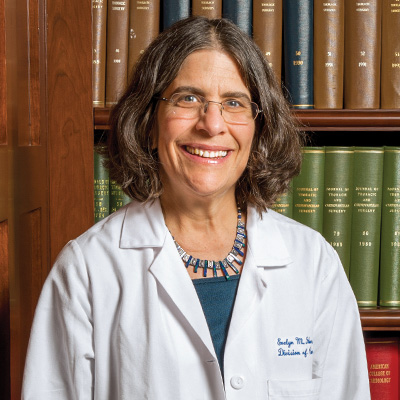COVID-19 poses a greater risk for patients with cardiovascular disease – especially heart failure – often leading to worse outcomes. Early identification of the virus in this high-risk population would be critical in order to deliver timely and more effective treatment, such as monoclonal antibodies, and prevent further spread of infection.
Cardiac implantable electronic devices (CIEDs) acquire physiologic data on cardiac patients enabling remote patient surveillance. Given the well-documented general effects of COVID-19 on the cardiac and respiratory systems, it is possible that certain CIED sensors may also identify a COVID-19 infection, perhaps even before the onset of symptoms.
To that end, cardiologists and heart failure specialists at NewYork-Presbyterian, Columbia, and Weill Cornell Medicine conducted a study to describe early physiologic changes associated with an acute COVID-19 infection among patients with CIEDs during the COVID-19 pandemic in New York City. The researchers included Kelly M. Axsom, MD, Medical Director of the Centralized Heart Failure Management Program, NewYork-Presbyterian; Evelyn M. Horn, MD, Director of Heart Failure and Pulmonary Hypertension at the Perkin Heart Failure Center of NewYork-Presbyterian/
The investigators hypothesized that substantial differences in CIED sensor data would be seen during the period immediately prior to COVID-19 testing for patients who tested positive compared to those who tested negative. Furthermore, they sought to describe differences in sensor changes at the time of COVID-19 testing among patients who tested positive, tested negative, and those who did not receive a COVID-19 test. The study also compared the resolution of sensor changes following COVID-19 testing among patients who tested positive to those who tested negative.
In their study design, the researchers evaluated CIED sensor data from 286 patients treated at NewYork-Presbyterian/
- 20 known COVID-positive patients
- 166 known COVID-negative patients
- 100 patients in the COVID untested control group
Data was drawn from CIED sensors, COVID-19 repositories, and electronic health record (EHR) data warehouses. Eligible patients included those 18 years or older who had an actively transmitting CIED. Ten CIED sensors were assessed in each analysis. The primary comparison was between COVID-positive and COVID-negative patients, which allowed the identification of changes that were exclusive to COVID-19 infection and not to other causes of acute decompensation.
This is the first study to systematically evaluate the early physiological changes prior to the onset of an acute COVID-19 infection indirectly identified by cardiac implantable electronic devices. Our findings provide early evidence of the power of remote monitoring with CIEDs for the early detection of physiologic changes that may be subtle and may precede clinical symptoms.
— Columbia and Weill Cornell Medicine study authors, Cardiovascular Digital Health Journal, October 2022
Key findings, which were published in the October 2022 issue of the Cardiovascular Digital Health Journal, demonstrated:
- Respiratory rate, activity, and HeartLogic index (a composite index of multiple sensors that signals potential worsening heart failure) deviated from baseline approximately 7 days before symptom onset and testing, which was significantly earlier for COVID-positive patients versus COVID-negative patients
- Respiratory rate during the 7 days before testing significantly predicted a positive versus a negative COVID-19 test, adjusting for age, sex, race, and device type, indicating sensors may have future prognostic potential
- A higher proportion of COVID-positive patients had an implantable cardioverter-defibrillator versus another device type, indicating more severe heart failure
- On average the HeartLogic index for COVID-positive patients was elevated above baseline 2 weeks prior to symptom onset and testing, which preceded the viral incubation period for COVID-19
- Early sensor changes may have signified worsening heart failure, which led to an increased vulnerability to a COVID-19 infection
- CIED sensor changes were also seen during the testing period and for several days following testing among COVID-positive patients compared to COVID-negative patients
- For COVID-positive patients, respiratory rate, activity, thoracic impedance, and HeartLogic index remained substantially changed from baseline for several days or weeks after COVID-19 testing
The NewYork-Presbyterian, Columbia, and Weill Cornell Medicine researchers concluded that physiologic data from remotely monitored CIEDs offer the opportunity to identify physiologic changes that may be associated with COVID-19 infection early in the illness. Sensor changes in COVID-positive patients signal early signs of infection that come before clinical symptoms, which may be used to assist in early detection of the infection and prevent decompensation in these at-risk individuals.








